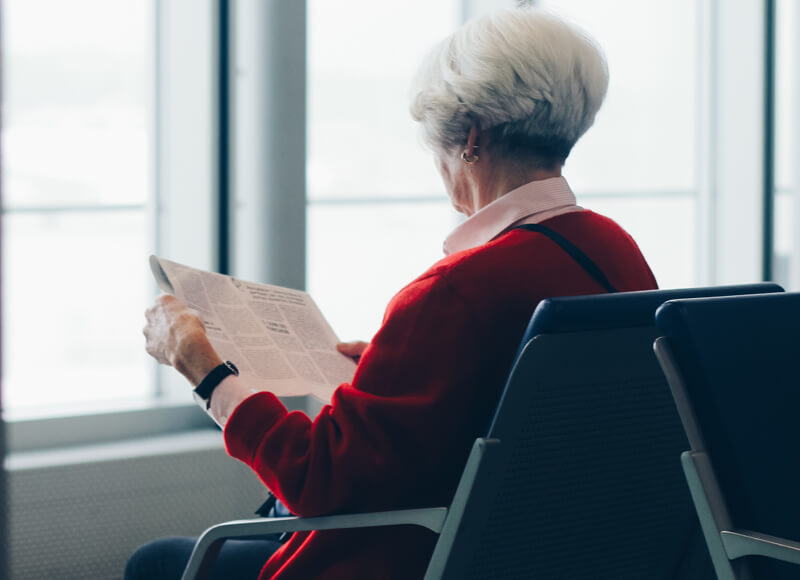Elder Abuse
If you have suffered elder abuse, contact Counsel Hound for a no-cost consultation and case evaluation.

Common Forms of Elder Abuse
Physical Abuse is using physical to inflict injury, pain, or impairment.[1]
Sexual Abuse is any non-consensual sexual contact with an elder.
Emotional Abuse is inflicting distress or pain through verbal or non-verbal acts.
Financial Abuse is the unauthorized use of an elder’s funds or assets.
Neglect is failing to complete any obligations or duties to an elder.
Elder Abuse Statistics
The CDC reports that 1 in 10 people aged 60+ experience some form of abuse, and more than 643,000 older adults have been treated in the emergency department for injuries. Almost 20,000 homicides occurred during the period reported. The CDC also notes that men have a higher rate of non-fatal assaults and homicides than women. Some groups of elderly adults face a higher risk of abuse than others. Women with disabilities are more likely to experience assault than women without disabilities, and elders with dementia are at a greater risk of abuse than those without dementia.[2]
The National Center on Elder Abuse found that perpetrators are most likely to be adult children or spouses, be male, have a history of substance abuse, have mental or physical health problems, have financial problems, and be experiencing major stress.[3]
According to the World Health Organization, rates of elder abuse are high in facilities such as nursing homes. Two in three nursing home staff reported that they had committed abuse in the past year.[4] None of these characteristics of elder abuse perpetrators excuse their unfathomable actions but knowing the statistics can help you recognize and prevent abuse.
Abuse Risk Factors

- Low social support significantly increases the risk of all forms of mistreatment.
- Dementia patients have a high risk of abuse. Close to 50% of people with dementia experience elder abuse.
- Previous traumatic experiences increase the risk for emotional, sexual, and financial mistreatment.
- Functional impairment and poor physical health increase the risk of abuse in elderly adults.
- Large household communities with non-spousal members may increase the risk of financial abuse.
- Lower-income or poverty caregivers and facilities are associated with elder abuse.
Signs of Elder Abuse
- Unusual changes in behavior or sleep
- Increased fear or anxiety
- Increased social isolation or decreased responsiveness
- Depression
- Untreated physical injuries such as broken bones, bruises, cuts, burns
- Torn, stained, or bloody underclothing
- Unexplained sexually transmitted diseases
- Lack of medical aids (glasses, walker, teeth, hearing aid, medications)
- Unexpected changes in their bank account
- Unusual or sudden changes in their will or other financial documents
- Fraudulent signatures on financial documents
- Unpaid bills
Preventing Elder Abuse
- Understand the challenges of older adults and their caregivers and try to provide support.
- Support over-burdened caregivers such as
- Help from friends, family, or local relief care groups.
- Adult daycare programs
- Counseling
- Outlets intended to promote emotional well-being.
- Check-in often on older adults who may have few friends and family members.
- Educate oneself and others about how to recognize and report elder abuse.
- Report abuse or suspected abuse to Adult Protective Services.[8]
In Recent News
REFERENCES
- https://www.apa.org/pi/ prevent-violence/ resources/ elder-abuse
- https://www.cdc.gov/ violenceprevention/ elderabuse/fastfact.html
- https://ncea.acl.gov/About-Us/What-We-Do/Research/Statistics-and-Data.aspx
- https://ncea.acl.gov/About-Us/What-We-Do/Research/Statistics-and-Data.aspx
- https://www.who.int/news-room/fact-sheets/detail/elder-abuse
- https://ncea.acl.gov/NCEA/ media/docs/ Red-Flags-of-Elder-Abuse-English.pdf
- https://www.cdc.gov/ violenceprevention/ elderabuse/fastfact.html
- https://www.napsa-now.org/ get-help/help-in-your-area/
No-Cost Case Evaluation
Law is complicate matter. It can cause you a big problem if you ignore it. Let us help you!
Free Consultation
Law is complicate matter. It can cause you a big problem if you ignore it. Let us help you!

